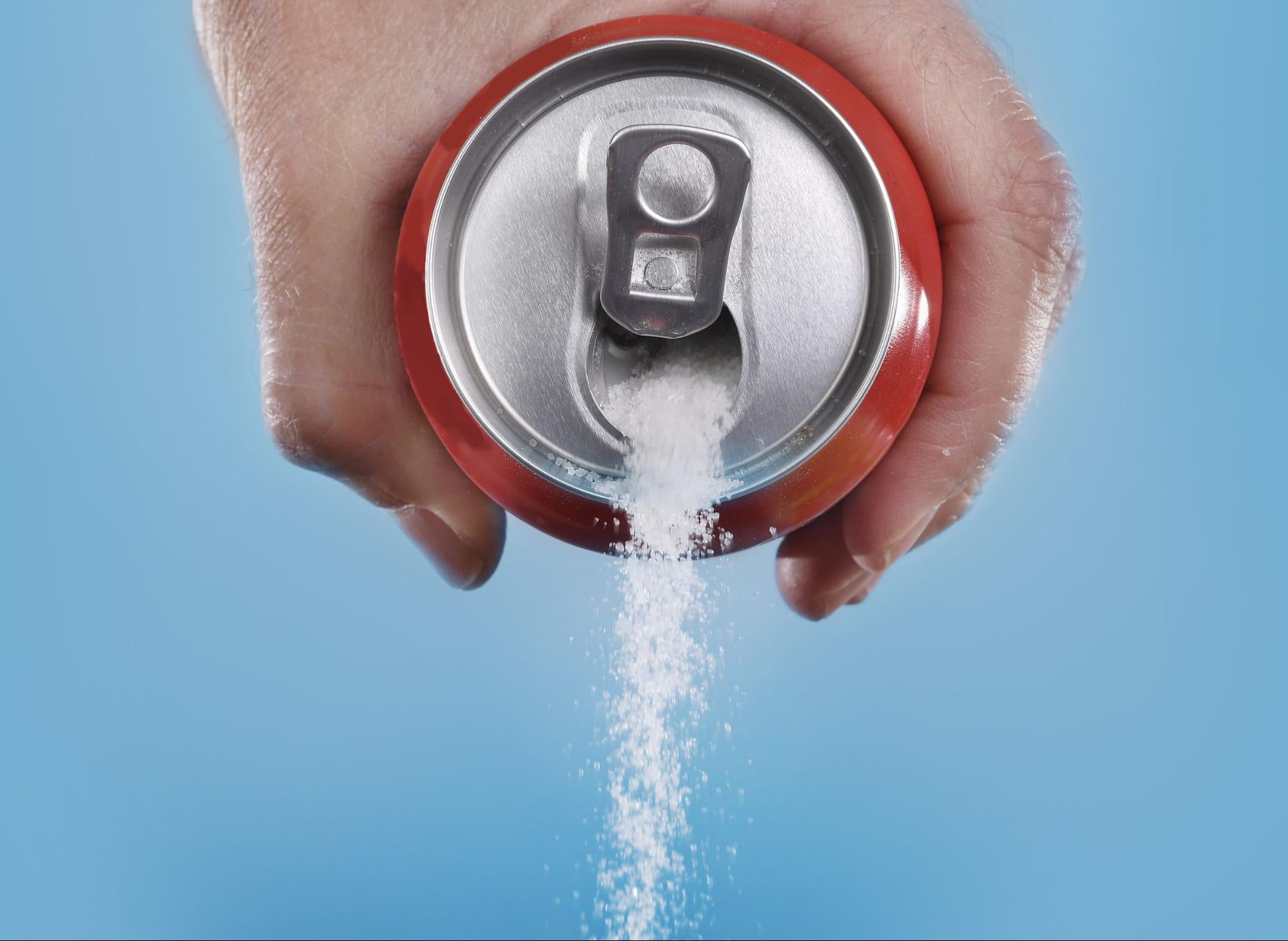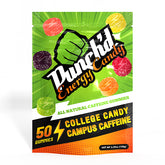Sugar Crashes and Weight Gain: What Diet Soda Really Does to The Body
Many people turn to diet soda because it has less calories than regular soda. If you’re consuming less calories, you must be losing weight and getting healthier, right? Not so much. When it comes to soda and diet soda, the biggest impact on your body comes from the sweeteners in them. And whether it’s pure cane sugar or an artificial alternative, all sweeteners cause a similar physical reaction.
Here’s the truth about drinking diet soda, and why it’s a major impediment to your weight loss and health goals.
Your Body on Sugar
High blood sugar (hyperglycemia) happens when we’ve overdone it on sugar, and the body can’t transport enough of it out of the blood.
This occurs after we’ve loaded up on carbohydrates or sweet drinks and foods. The high is followed by a sugar crash a few hours later. Low blood sugar or reactive hypoglycemia happens when too much blood sugar is transported out of the blood, explains certified holistic nutritionist Kelly Leveque. “This can leave us feeling tired, hungry, weak, shaky, lightheaded, and anxious. As a result, we crave sugar and carbohydrates, thinking they will pick us back up. In reality, they start the cycle all over again.”
Additional symptoms of a sugar crash include irritability, discomfort, jitters, excess sweat and headaches, writes the staff at Sanford Health. In general, sugar crashes cause us to feel tired and distracted, which can lead to disrupted productivity in daily life.
Although feeling tired can make us continue to crave sweet and caloric foods, what our body really needs is protein to balance out blood glucose. Eating protein-rich foods along with fiber and fat can help halt a sugar crash and its negative, uncomfortable effects.
Drinking sugary drinks like soda ignites a number of responses in the body. First and foremost, the sugar hits the bloodstream and causes the pancreas to release insulin, which then drops off most of the sugar in the liver. There, the sugar is converted to glucose sugar, called glycogen, explains registered dietitian Abbey Sharp.
She says once the glycogen stores in the liver are “maxed out,” the leftover energy is then dropped off in fat cells. When soda is consumed regularly, and there isn’t enough energy output to prevent fat cells from growing, weight gain occurs.

Why Diet Soda Causes Weight Gain
Drinking diet soda may seem like a smart way to counteract this process. After all, the term diet seems like it would promote weight loss, but this isn’t exactly the case, says Malia Frey, a fitness nutrition specialist certified by the American Council on Exercise.
While we may be reducing calories by drinking diet soda instead of regular soda, we’re still consuming something that tastes sweet, and it’s that sweetness that creates additional cravings.
“If you replace your regular pop with a diet variety you might be eliminating calories only to replace them again when your sugar craving kicks in,” she explains.
Minda Zetlin at Inc. puts it this way: Diet soda fools the body into craving and expecting sugar, which means your metabolism will work differently. The foods eaten during a sugar craving may be stored as fat at a higher rate, leaving less sugar to be used for energy. In turn, this can leave a person feeling hungry and longing for more food.
Diet Soda and Additional Health Risks
Diet soda leads to weight gain, and being overweight raises a number of its own risks. But aside from putting on pounds, diet soda can lead to a number of serious risks associated with the heart and brain.
A study published in the journal “Stroke” links the daily consumption by postmenopausal women of two or more diet sodas (and other artificially sweetened beverages) with increased risk of stroke, heart attack and early death, writes Claire Maldarelli at Popular Science.
“Women who consumed two or more artificially sweetened beverages each day were 31 percent more likely to have a stroke, 29 percent more likely to have heart disease, and 16 percent more likely for premature death than the women who either drank one artificially sweetened beverages per week or less.”
And it’s not just women at risk: Anyone who drinks soda is subjected to its negative effects, even children.
This was demonstrated in a recent study published in “Pediatric Obesity,” which sought to understand whether diet soda consumption helps prevent weight gain. Medical Daily writer Leian Naduma explains the results of this study which found that children who drank diet sodas over a five year period consumed more calories than those who drank water regularly. Since being overweight as a child can lead to additional health complications later in life, this shows that overconsuming diet drinks isn’t safe at any age.

What About Artificial Sweeteners?
The selling point of diet soda is that it uses artificial or natural sweeteners instead of ordinary processed sugar. Unfortunately, almost all sweeteners mimic the same effect of sugar on the body. Think about it this way: If it tastes sweet, it’s likely causing a sugar high.
Artificial sweeteners can cause a range of physical symptoms, including fatigue, says registered nurse and healthcare keynote speaker Donna Cardillo. We know that fatigue can prompt us to reach for additional sugars and carbohydrates. But what else might artificial sweeteners do to the body?
Zee Krstic at Cooking Light points to a study regarding the negative impact some artificial sweeteners can have on gut health. Aspartame, saccharin and sucralose are all common sweetening ingredients that have proven detrimental to beneficial gut bacteria. Decreased levels of gut bacteria have in turn been associated with obesity and bowel cancer.
Functional medicine practitioner Chris Kesser highlights another study that demonstrates this link. It reveals that consumption of NAS (non-caloric artificial sweeteners) increases the risk of developing glucose intolerance and metabolic syndrome. This is a disorder of the metabolism that leads to weight fluctuations, heart problems and diabetes, explains Holly Van Hare at The Daily Meal. She notes studies that show diet soda, due to its sweeteners, can elevate a person’s risk of metabolic syndrome by up to 30 percent.
Another detriment associated with artificial sweeteners is insomnia. Physician assistant Amy Hendel points to a body of research which finds that regular consumption of artificial sweeteners instigates hyperactivity, decreased sleep quality and insomnia. Being unable to sleep properly cause fatigue during waking hours. As we’ve discussed, fatigue and sleepiness make us reach for sugar-rich foods which only contribute to this negative cycle.
If you’re struggling to wean yourself off soda and diet drinks seem like a safe alternative, don’t think of them as a permanent fix. The goal isn’t to get soda drinkers to consume diet alternatives forever, explains Vasanti Malik, a research scientist at the Harvard T.H. Chan School of Public Health. “It’s to get people to switch from sugar to water, but diet [drinks or foods] might be an intermediate way to help them.”
Images by: Pablo Hidalgo/©123RF.com, rawpixel, ocusfocus/©123RF.com








